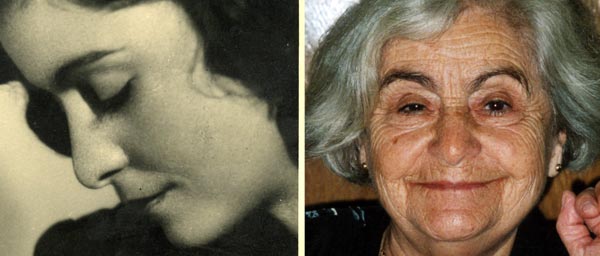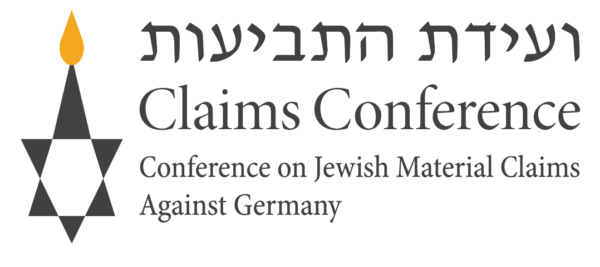Survivor Story: Yvette Anavi
Yvette passed away in December of 2020.
Z”l May her memory be for a blessing.

At age 92, Yvette Anavi of Plovdiv, Bulgaria is still quite active and talkative, writing a book on Jewish women to add to the several she has already published. And at age 92, she has finally received acknowledgement of her persecution during WWII in the form of a payment from the Holocaust Victim Compensation Fund (HVCF), a Claims Conference program established in 2011 following negotiations with Germany.
Born in Plovdiv, Yvette’s early years passed happily in an economically comfortable family of intellectuals. After graduating high school in 1938, Yvette was able to begin studying at the University of Strasbourg. Back in Bulgaria for a visit when war broke out, she arranged to continue her studies at Sofia University.
With anti-Jewish legislation beginning in 1941 in Bulgaria, Yvette had to wear a yellow star on her clothing. She endured insults such as, “Dogs and Jews don’t need education” when seeking the mandatory police permission to travel to Sofia. The fascist authorities forced Yvette to change the spelling of her family name from Calev to Caleff in order this name not to be misinterpreted as Bulgarian one.
Yvette and Leon Anavi were married in June 1944, shortly after he had received notice that he was to be sent to a labor camp.
After the war, Yvette and Leon raised two sons and she worked as a librarian at one of Bulgaria’s largest libraries. After the fall of Communism, Yvette published several books on Jewish topics and taught a course on Ladino, the language of the Jews expelled from Spain in 1492, including by those who made their way to Bulgaria.
Now a widow with four grandchildren, Yvette is gratified to have finally received a payment that acknowledges her persecution and suffering during the Shoah. The HVCF makes one-time payments of €1,900 to certain Jewish victims of Nazi persecution living in the 10 countries of the former Soviet bloc that now belong to the European Union. It was established after many years of Claims Conference negotiations with Germany that Nazi victims in the former Soviet bloc, who are not eligible for the Hardship Fund, are entitled to recognition of their persecution.
“Although many years have passed, someone has recognized the pain, anxiety, privations, and lack of freedom we endured,” Yvette says. “It is not the amount of money that warms me but that you have understood the truth. Thank you!”

